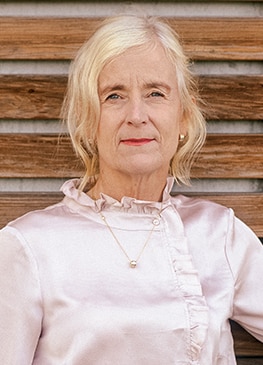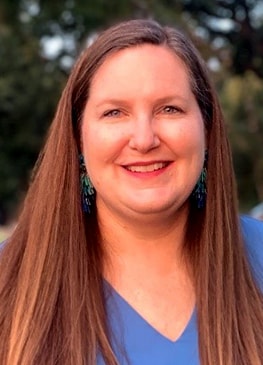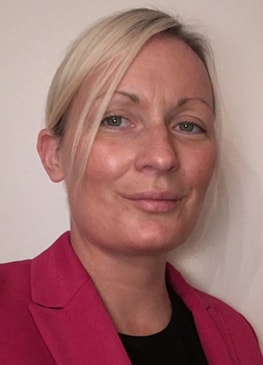Read the full interview here
-

Q. Tell us about your early years.
A. My mother was from southeast Asia, and my father spent quite a bit of time there, so I was born in southeast Asia but grew up on a family farm in Tennessee. One of my earliest influences was Sesame Street. That’s how I learned to speak English, and I spoke Lao to my English-speaking grandmother for a while.
The biggest impact on me growing up was that I taught my mother how to read and write English. So everything that had to be addressed in school, such as PTA meetings and report cards, fell in my lap. I was conditioned very early on to take responsibility, and I really never turned back.
-

Q. Tell us more about your parents.
A. My mother was a pious Buddhist from southeast Asia, and my father was wonderful about learning her culture. I didn’t see any conflict between my parents because my father was very respectful of my mother’s Buddhist ways. He learned a lot from her, and that had a huge influence on me.
-

Q. Were you in leadership roles early on?
A. I was student body president and in other leadership roles. I always thought that there was a right way to do things. That really grew from my mother’s experience with her own home country. Laos fell to Communism in 1975, and I grew up champing at the bit to go back and prove that wrong.
I also was a bit of a budding entrepreneur. Even before I could speak English, I set up a little booth between my grandparents’ home and my home, and I accosted my grandfather every day to make him buy painted stones from me. And I also made cupcakes and sold them to him.
There’s a battle inside me between being a lawyer and being a marketer. In middle school, I sold Hot Wheels cars, and I gave away guarantees. I told people that if a wheel fell off, I would give them a new one. There was quite a bit of that until I was stopped by the principal.
-

Q. Where does your stamina and drive come from?
A. From growing up on a farm, where your big adversary is Mother Nature. Sometimes Mother Nature works with you, and sometimes she doesn’t. It doesn’t matter how you feel in the morning. You’ve got to get up and pick crops and get them out to market, and I did that year in and year out from the time I was nine until I was in college.
-

Q. As you were progressing in your career, did you face any headwinds because you’re a woman?
A. I would say my single biggest headwind is that I’m a bit of an anomaly because I’m biracial. Growing up in a rural town in Tennessee with only 400 people, the headwind was from being the oddball in the group.
When we arrived there I was about eight years old, there was quite a flutter because we were Asian kids. Many of the kids assumed that my siblings and me knew kung fu, which we didn’t, but we never let anyone know that. Growing up on a farm created a frame of reference that people could understand because other neighbors also worked on farms and raised animals, just as we did.
But we were always a little bit odd. We looked different, but the wonderful thing about how my father raised us was to be compassionate with people who’ve never come across people like us before.
-

Q. How did you navigate the inevitable headwinds you faced in your professional career because you’re a woman?
A. I learned that relationships with my colleagues were all incredibly important and also that I needed to know where somebody stood on an issue. They could be completely polar opposite from me, but those relationships helped me in those situations because I’d already discussed issues with my colleagues. That doesn’t mean that I wasn’t run over or mansplained in meetings.
I’m a bit of an introvert, so it takes me a little while to get wound up to go after them. Persistence, like an ice breaker, is more my style. So if I had anybody really trying to run over me, I took care of that outside of the meeting. I would say to them, “Hey, in that meeting, you and I were at loggerheads, and essentially you and I are not at loggerheads because we agree on these things. So next time that we’re talking about this, I will come at you in the meeting if you do that again. And I’m being a friend to you now because this is not a threat. This is what will happen.”
-

Q. What mentoring advice do you typically give to other women?
A. One theme is what does a male environment do with somebody like me? Somebody once asked me a question: “I’m a queer Black woman. I’m a lawyer, and I believe I give great advice. So how do I deal with clients who have a problem with that?” I told them, “You’ve got to get over it. You’ve got to get really good at what you do because people will see right past it, and they really will. And if they can’t see past it, then you’ve got to move on. You cannot let that eat you. You cannot let that live rent-free in your prodigious mind that you need to apply to doing great things for the world.”
-

Q. What is your advice on how to make sure your work is acknowledged without being overly self-promotional? It’s a balancing act that a lot of people struggle with.
A. I’m a workhorse, and I had to learn that there are times to promote what you do, and there are other times that you don’t. The most important thing that I found for myself was to heavily promote my leaders when they did great things, and also to promote my peers. I found that created a virtuous circle of them promoting me. I’m quiet. I really don’t like the limelight, and I find that I’m fairly satisfied there. But I think that if you’re not satisfied there, you’ve got to find those moments when you can promote yourself.







